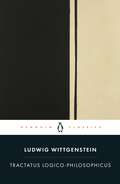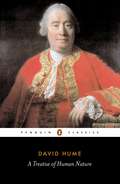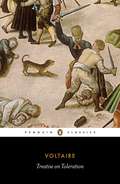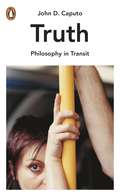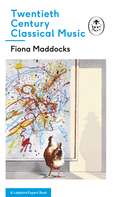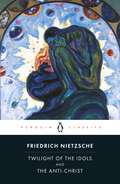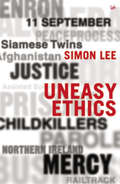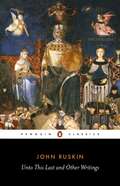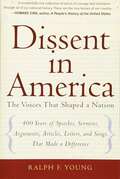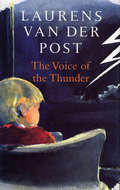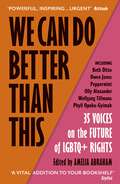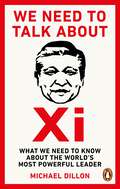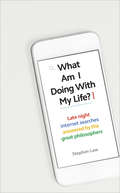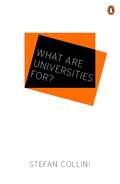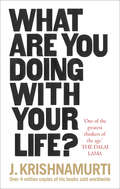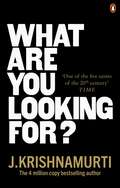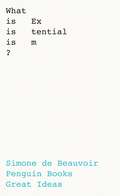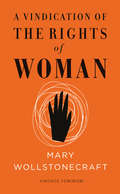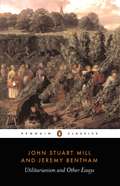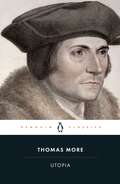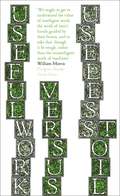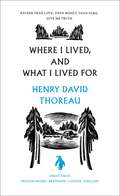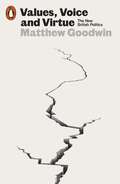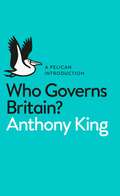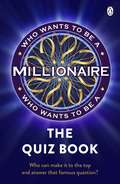- Table View
- List View
Tractatus Logico-Philosophicus: The New Translation (Routledge Classics Ser.)
by Ludwig WittgensteinWidely regarded as one of the most influential philosophical works of the twentieth century, Ludwig Wittgenstein's Tractatus Logico-Philosophicus is a succinct yet wide-ranging exploration of language and logic, science and mysticism, which has inspired generations of thinkers, artists and poets. In a series of short, bold statements, Wittgenstein seeks to define the limits of language, its relation to logic, its power and its inherent failings. Originally published in the early 1920s, it is the only book-length work the renowned philosopher published in his lifetime.In this thrilling new translation, Alexander Booth displays an extraordinary sensitivity to the subtle influence on Wittgenstein's gem-like prose - at once specialist and, often, remarkably plain-spoken - of his background in mechanical engineering, while highlighting the underlying poetry of this seminal text.
A Treatise of Human Nature
by David HumeOne of the most significant works of Western philosophy, Hume's Treatise was published in 1739-40, before he was thirty years old. A pinnacle of English empiricism, it is a comprehensive attempt to apply scientific methods of observation to a study of human nature, and a vigorous attack upon the principles of traditional metaphysical thought. With masterly eloquence, Hume denies the immortality of the soul and the reality of space; considers the manner in which we form concepts of identity, cause and effect; and speculates upon the nature of freedom, virtue and emotion. Opposed both to metaphysics and to rationalism, Hume's philosophy of informed scepticism sees man not as a religious creation, nor as a machine, but as a creature dominated by sentiment, passion and appetite.
Treatise on Toleration
by VoltaireVoltaire's Treatise on Toleration is one of the most important essays on religious tolerance and freedom of thought A powerful, impassioned case for the values of freedom of conscience and religious tolerance, Treatise on Toleration was written after the Toulouse merchant Jean Calas was falsely accused of murdering his son and executed on the wheel in 1762. As it became clear that Calas had been persecuted by 'an irrational mob' for being a Protestant, the Enlightenment philosopher Voltaire began a campaign to vindicate him and his family. The resulting work, a screed against fanaticism and a plea for understanding, is as fresh and urgent today as when it was written.
Truth: Philosophy in Transit (Philosophy in Transit)
by John D. CaputoIn the first in a new series of easily digestible, commute-lengthbooks of original philosophy, renowned thinker John D. Caputo explores the many notions of 'truth', and what it really meansRiding to work in the morning has has become commonplace. We ride everywhere. Physicians and public health officials plead with us to get out and walk, to get some exercise. People used to live within walking distance to the fields in which they worked, or they worked in shops attached to their homes. Now we ride to work, and nearly everywhere else. Which may seem an innocent enough point, and certainly not one on which we require instruction from the philosophers. But, truth be told, it has in fact precipitated a crisis in our understanding of truth. Arguing that our transportation technologies are not merely transient phenomena but the vehicle for an important metaphor about postmodernism, or even constitutive of postmodernism, John D. Caputo explores the problems posited by the way in which science, ethics, politics, art and religion all claim to offer us (the) "truth", defending throughout a "postmodern", or "hermeneutic" theory of truth, and posits his own surprising theory of the many notions of truth.John D. Caputo is a specialist in contemporary hermeneutics and deconstruction with a special interest in religion in the postmodern condition. The Thomas J. Watson Professor of Religion Emeritus at Syracuse University and the David R. Cook Professor of Philosophy Emeritus at Villanova University, he has spearheaded an idea he calls weak theology.
Twentieth-Century Classical Music: A Ladybird Expert Book (The Ladybird Expert Series #20)
by Fiona MaddocksPart of the ALL-NEW LADYBIRD EXPERT SERIES.____________How did modern classical music develop over the 20th Century?What enabled women to get their music performed in the early 1900s?Which classical composers borrowed from jazz?How did composers respond to politics and war?DISCOVER the stories behind Mahler's, Symphony No. 5 (1901-2), Ullman's Piano Sonata No. 7 (1944), Bernstein's West Side Story (1957), as well as learn about minimalism, jazz, swing, opera . . . AND UNDERSTAND TWENTIETH CENTURY CLASSICAL MUSIC.Discover the answers and more inside Fiona Maddocks' Twentieth Century Classical Music, the thrilling and accessible account that explains what happened throughout the 20th century, who the key composers were and what influenced them to write what they did?
Twilight of Idols and Anti-Christ
by Friedrich NietzscheIn these two devastating late works, Nietzsche offers a powerful attack on the morality and the beliefs of his timeNietzsche's Twilight of the Idols is a 'grand declaration of war' on reason, psychology and theology, which combines highly charged personal attacks on his contemporaries (in particular Hegel, Kant and Schopenhauer) with a lightning tour of his own philosophy. It also paves the way for The Anti-Christ, Nietzsche's final assault on institutional Christianity, in which he identifies himself with the 'Dionysian' artist and confronts Christ: the only opponent he feels worthy of him.Translated by R. J. Hollingdale with an Introduction by Michael Tanner
Uneasy Ethics
by Simon LeeProfessor Simon Lee explores five acute moral dilemmas of the new millennium, each of which has caused un-ease among liberals and conservatives alike. His variation on the old adage that hard cases make bad law is to say that hard cases make for un-easy ethics. If you do not feel uneasy about your answer then you have not understood the questions posed by a series of dilemmas. First, he unravels the moral thinking behind opposing views of the case of the Siamese twins, which attracted worldwide attention in the summer and autumn of 2000, showing how the Archbishop of Westminster argued on ethical principles while the judges responded by using hypothetical 'hard cases'. Second, he explores sharply conflicting reactions to the release in the summer of 2001 of the 'child child killers' of the little boy James Bulger, asking how he find space for atonement. Third, he traces the moral dilemmas within the stop-start Northern Irish peace process which has seen so many twists and turns in the past couple of years. Fourth, he examines the ethics of business and government behaviour in the year of collapses from rural industry to Railtrack. Finally, he offers one of the first considered ethical analyses of contrasting responses to the terror attacks in the USA on 11 September 2001. Ranging across philosophy, law and theology, this analysis of hard cases and un-easy ethics culminates in a novel interpretation of politics' elusive Third Way.
Unto This Last and Other Writings
by John RuskinFirst and foremost an outcry against injustice and inhumanity, Unto this Last is also a closely argued assault on the science of political economy, which dominated the Victorian period. Ruskin was a profoundly conservative man who looked back to the Middle Ages as a Utopia, yet his ideas had a considerable influence on the British socialist movement. And in making his powerful moral and aesthetic case against the dangers of unhindered industrialization he was strangely prophetic. This volume shows the astounding range and depth of Ruskin's work, and in an illuminating introduction the editor reveals the consistency of Ruskin's philosophy and his adamant belief that questions of economics, art and science could not be separated from questions of morality. In Ruskin's words, 'There is no Wealth but Life.'
Dissent In America: Voices That Shaped A Nation
by Ralph F. YoungThis collection of primary sources presents the story of US History as told by dissenters who, throughout the course of American history, have fought to gain rights they believed were denied to them or others, or who disagree with the government or majority opinion. Each document is introduced by placing it in its historical context, and thought-provoking questions are provided to focus the student when s/he reads the text. Instructors are at liberty to choose the documents that best highlight a theme they wish to emphasize.
The Voice of the Thunder
by Sir Laurens Van Der PostFrom the beginning, Lauren Van Der Post has been aware of a dimension in life far longer and more significant than the outer eventfulness of everyday living. His perception of life's mysterious power began with the Bushman, the first people of his native Africa, and grew in the universal imagery of dreams, the fertile legends and stories of ancient civilization, the intuitive teaching of prophets, poets and other pioneers of human awareness. In this book he has brought together two of his most deeply felt and far reaching essays, and has extended their message with great imaginative insight, exploring the potential in all men and women to acquire self-knowledge and to live life according to its fundamental precepts.
We Can Do Better Than This: An urgent manifesto for how we can shape a better world for LGBTQ+ people
by Beth Ditto Owen Jones Peppermint Olly Alexander Wolfgang Tillmans Phyll Opoku-GyimahHow do we shape a better world for LGBTQ+ people? Olly Alexander, Peppermint, Owen Jones, Beth Ditto, Shon Faye and more share their stories and visions for the future.'A vital addition to your bookshelf' Stylist, 5 Books for Summer'Captivating... A must-read' Gay Times, Books of the YearIn We Can Do Better Than This, 35 voices - actors, musicians, writers, artists and activists - answer this vital question, at a time when the queer community continues to suffer discrimination and extreme violence. Through deeply moving stories and provocative new arguments on safety and visibility, dating and gender, care and community, they present a powerful manifesto for how - together - we can change lives everywhere.'Powerful, inspiring...urgent' Attitude'Read and be inspired' Peter Tatchell'Illuminating' Paul Mendez, author of Rainbow Milk'Friendly and fierce' Jeremy Atherton Lin, author of Gay Bar
We Need To Talk About Xi: What we need to know about the world’s most powerful leader
by Michael DillonMeet the most powerful leader in the world. Chinese premier Xi Jinping graces our television screens and news headlines on a regular basis. But even after a decade in power, he remains shrouded in mystery.From growing up with a father purged in Mao's Cultural Revolution and his mission to eradicate poverty, to his persecution of Uyghur Muslims and paranoia about being likened to Winnie-the-Pooh, Xi Jinping is a man obscured by caricatures. In this short, essential primer, historian and writer Michael Dillon unveils the character of Xi Jinping - arguably the world's most powerful man - to truly understand his grip on China, what he wants and how the West gets him wrong.But this is not just the story of Xi; this is the story of today's largest economic powerhouse, which dives into the crux of the issue - what does Xi's leadership of China mean for the rest of the world, and what will he do next?
What Am I Doing with My Life?: And other late night internet searches answered by the great philosophers
by Stephen LawLife philosophy based on Google searchesHave I found 'the one'?Am I a psychopath?Should I be allowed to say whatever I want? Millions of people ask Google all sorts of questions, everything from the big and small. Responding to the biggest, existential questions asked online and using the wisdom of Plato, Kant, Kierkegaard and other philosophical greats philosopher, academic, and all-round polymath, Stephen Law, undertakes the challenge and explores our modern-day concerns with tongue-in-cheek sagacity. No matter what you’ve googled in a midnight moment of existential despair, this book will answer all your burning questions.
What are Universities For?
by Stefan ColliniAcross the world, universities are more numerous than they have ever been, yet at the same time there is unprecedented confusion about their purpose and scepticism about their value. What Are Universities For? offers a spirited and compelling argument for completely rethinking the way we see our universities, and why we need them. Stefan Collini challenges the common claim that universities need to show that they help to make money in order to justify getting more money. Instead, he argues that we must reflect on the different types of institution and the distinctive roles they play. In particular we must recognize that attempting to extend human understanding, which is at the heart of disciplined intellectual enquiry, can never be wholly harnessed to immediate social purposes - particularly in the case of the humanities, which both attract and puzzle many people and are therefore the most difficult subjects to justify.At a time when the future of higher education lies in the balance, What Are Universities For? offers all of us a better, deeper and more enlightened understanding of why universities matter, to everyone.
What Are You Doing With Your Life?
by J. Krishnamurti'One of the greatest thinkers of the age' The Dalai Lama'One of the five saints of the 20th century' - TIME magazine 'Krishnamurti influenced me profoundly' - Deepak Chopra Who are you?What are you?What do you want from life? One of the world's great philosophical teachers, Krishnamurti, offers his inspiring wisdom on many of life's hurdles from relationships and love, to anxiety and loneliness. He answers such questions as 'What is the significance of life?' and 'How do I live life to the full?' to reveal the best way of being true to yourself. Read by millions from all walks of life, Krishnamurti shows us there is no path, no higher authority, no guru to follow, and that ultimately it is our own responsibility as to how we live our lives.
What Are You Looking For?
by J. KrishnamurtiFOUR MILLION COPY BESTSELLING AUTHOR 'One of the greatest thinkers of the age' The Dalai Lama What is love?Who am I without my relationships? What is the relationship between myself and society?One of the world's greatest philosophical teachers, Krishnamurti, offers his inspiring wisdom on a core feature of life: our relationships. From parents to partners and colleagues to friends, Krishnamurti answers our deepest defining questions and reveals a path to truly loving yourself, others and the world around you.
What Is Existentialism? (Penguin Great Ideas)
by Simone de Beauvoir'It is possible for man to snatch the world from the darkness of absurdity'How should we think and act in the world? These writings on the human condition by one of the twentieth century's great philosophers explore the absurdity of our notions of good and evil, and show instead how we make our own destiny simply by being.One of twenty new books in the bestselling Penguin Great Ideas series. This new selection showcases a diverse list of thinkers who have helped shape our world today, from anarchists to stoics, feminists to prophets, satirists to Zen Buddhists.
A Vindication of the Rights of Woman (Vintage Feminism Short Editions)
by Mary WollstonecraftDiscover Wollstonecraft’s classic feminist text in an abridged, digestible form.WITH AN INTRODUCTION BY ZOE WILLIAMS The term feminism did not yet exist when Mary Wollstonecraft wrote this book, but it was the first great piece of feminist writing. In these pages you will find the essence of her argument – for the education of women and for an increased female contribution to society. Her work made the first ripples of what would later become the tidal wave of the women’s rights movement. Rationalist but revolutionary, Wollstonecraft changed the world for women.Vintage Feminism: classic feminist texts in short form
Utilitarianism and Other Essays
by Jeremy Bentham John Stuart MillOne of the most important nineteenth-century schools of thought, Utilitarianism propounds the view that the value or rightness of an action rests in how well it promotes the welfare of those affected by it, aiming for 'the greatest happiness of the greatest number'. Jeremy Bentham (1748-1832) was the movement's founder, as much a social reformer as a philosopher. His greatest interpreter, John Stuart Mill (1806-73), set out to humanize Bentham's pragmatic Utilitarianism by balancing the claims of reason and the imagination, individuality and social well-being in essays such as 'Bentham', 'Coleridge' and, above all, Utilitarianism. The works by Bentham and Mill collected in this volume show the creation and development of a system of ethics that has had an enduring influence on moral philosophy and legislative policy.
Utopia
by Thomas More'It remains astonishingly radical ... one of Utopia's most striking aspects is its contemporaniety' Terry EagletonIn Utopia, Thomas More gives us a traveller's account of a newly-discovered island where the inhabitants enjoy a social order based on natural reason and justice, and human fulfilment is open to all. As the traveller describes the island, a bitter contrast is drawn between this rational society and the practices of Europe. How can the philosopher reform his society? In his discussion, More takes up a question first raised by Plato and which is still a challenge in the contemporary world. In the history of political thought few works have been more influential than Utopia, and few more misunderstood.Translated and introduced by Dominic Baker-Smith
Useful Work v. Useless Toil (Penguin Great Ideas)
by William MorrisVisionary English Socialist and pioneer of the Arts and Crafts movement, William Morris argued that all work should be a source of pride and satisfaction, and that everyone should be entitled to beautiful surroundings – no matter what their class. Throughout history, some books have changed the world. They have transformed the way we see ourselves – and each other. They have inspired debate, dissent, war and revolution. They have enlightened, outraged, provoked and comforted. They have enriched lives – and destroyed them. Now Penguin brings you the works of the great thinkers, pioneers, radicals and visionaries whose ideas shook civilization and helped make us who we are.
Where I Lived, and What I Lived For (Penguin Great Ideas)
by Henry ThoreauThroughout history, some books have changed the world. They have transformed the way we see ourselves - and each other. They have inspired debate, dissent, war and revolution. They have enlightened, outraged, provoked and comforted. They have enriched lives - and destroyed them. Now Penguin brings you the works of the great thinkers, pioneers, radicals and visionaries whose ideas shook civilization and helped make us who we are.Thoreau's account of his solitary and self-sufficient home in the New England woods remains an inspiration to the environmental movement - a call to his fellow men to abandon their striving, materialistic existences of 'quiet desperation' for a simple life within their means, finding spiritual truth through awareness of the sheer beauty of their surroundings.
Values, Voice and Virtue: The New British Politics
by Matthew Goodwin*THE SUNDAY TIMES BESTSELLER**A Financial Times 2023 book to watch*'Forceful ... The fundamental thrust of Goodwin's argument is right ... a new centre ground of British politics is being formed - even if both parties have yet to fully comprehend it' The TimesWhat has caused the recent seismic changes in British politics, including Brexit and a series of populist revolts against the elite? Why did so many people want to overturn the status quo? Where have the Left gone wrong? And what deeper trends are driving these changes?British politics is coming apart. A country once known for its stability has recently experienced a series of shocking upheavals. Matthew Goodwin, acclaimed political scientist and co-author of National Populism, shows that the reason is not economic hardship, personalities or dark money. It is a far wider political realignment that will be with us for years to come. An increasingly liberalised, globalised ruling class has lost touch with millions, who found their values ignored, their voices unheard and their virtue denied. Now, this new alliance of voters is set to determine Britain's fate.Sunday Times bestseller, April 2023
Who Governs Britain? (Pelican Books)
by Anthony King'Jaw-dropping' Daily Telegraph'A timely examination of how the distribution of power has shifted' GuardianWhere does power lie in Britain today? Is our system of government still fit for purpose? A revelatory guide from the esteemed expert in British government and politicsThe British system has been radically transformed in recent decades, far more than most of us realize. As acclaimed political scientist and bestselling author Anthony King shows, this transformation lies at the heart of British politics today. Imagining - or pretending - that the British political system and Britain's place in the world have not greatly changed, our political leaders consistently promise more than they can perform. Political and economic power is now widely dispersed both inside and outside the UK, but Westminster politicians still talk the language of Attlee and Churchill. How exactly has the British system changed? Where does power now lie? In Who Governs Britain?, King offers the first assessment in many years of Britain's governing arrangements as a whole, providing much needed context for the upcoming election.
Who Wants to be a Millionaire - The Quiz Book
by Sony Pictures Television UK Rights LtdHave you got what it takes? Sharpen your mind with Who Wants to be a Millionaire - The Quiz Book and see if you would win the £1,000,000 jackpotAnd remember, no cheating . . .__________Sir Seretse Khama was the first president of which country?A: BotswanaB: TanzaniaC: GhanaD: Zambia...For £1,000,000, what is your final answer?__________Only five people on UK screens have ever answered their way to the top and taken home the full cash prize.The question is, could you become a winner?Whether you're confident quizzer or trivial about trivia, Who Wants to Be a Millionaire - The Quiz Book is perfect for a solo test of knowledge or the ultimate at-home quiz with family and friends.Complete with all four life-lines and over 1,000 brand new questions, and written by brains behind the classic show, you can recreate Who Wants to Be a Millionaire from your home. Now there's only one question that really matters . . .Do you have what it takes?
